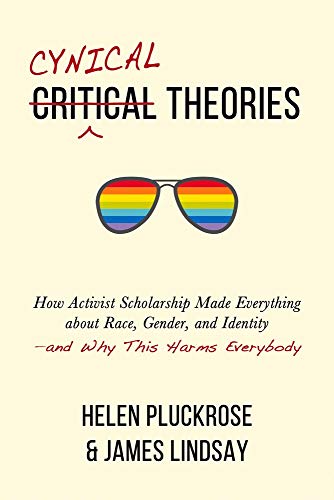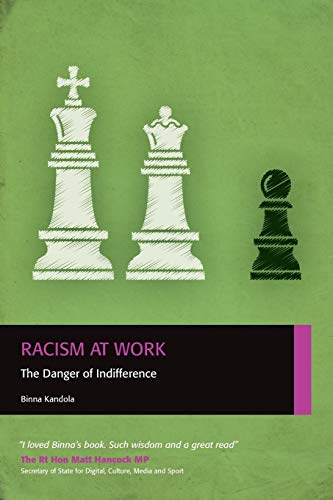‘Complete and utter crap.’ That’s how Bill Michael, until recently UK chair of global accountancy firm KPMG, described the concept of unconscious bias to his apparently stunned staff. ‘There is no such thing as unconscious bias’, he elaborated. ‘I don’t buy it. Because after every single unconscious-bias training that has ever been done, nothing’s ever improved.’ As is the custom nowadays, Michael issued a public apology before tending his resignation. This is a shame because his comments were not that far wide of the mark. As I explore in a new report for Civitas, the anti-racism training industry does little to improve outcomes for BAME people and, worse, breathes new life back into racial thinking.
A review commissioned by the Government Equalities Office to analyse the effectiveness of unconscious-bias training found that ‘there is currently no evidence that this training changes behaviour in the long term or improves workplace equality in terms of representation of women, ethnic minorities or other minority groups’. The Harvard Business Review likewise notes that ‘even when the training is beneficial, the effects may not last after the programme ends’. Worse still, mounting evidence points to workplace diversity training actually having unintended negative consequences.
 Cynical Theories: How ...
Buy New $21.14
(as of 03:40 UTC - Details)
Yet increasing numbers of employers insist their staff undertake anti-racism training. A survey conducted for the Guardian suggests that over 80 per cent of all UK-based companies run training sessions specifically on unconscious bias. Virtually all Fortune 500 companies offer some form of diversity training. The diversity industry has become a global phenomenon, extending its reach to many millions of citizens, with online courses targeting many more. In many schools, universities and workplaces, attendance at anti-racism workshops is mandatory – or effectively mandatory when non-attendance makes your position untenable.
Cynical Theories: How ...
Buy New $21.14
(as of 03:40 UTC - Details)
Yet increasing numbers of employers insist their staff undertake anti-racism training. A survey conducted for the Guardian suggests that over 80 per cent of all UK-based companies run training sessions specifically on unconscious bias. Virtually all Fortune 500 companies offer some form of diversity training. The diversity industry has become a global phenomenon, extending its reach to many millions of citizens, with online courses targeting many more. In many schools, universities and workplaces, attendance at anti-racism workshops is mandatory – or effectively mandatory when non-attendance makes your position untenable.
Racism at work
This massive rollout of diversity training is not only taking place without any evidence of its effectiveness — it is also happening at a time when, by all measures, race has never been less of a barrier to advancement in the workplace. Yet the absence of both legal discrimination and explicit prejudice are no hindrance to the rise of the race experts. Binna Kandola, author of Racism at Work, explains:
‘The racism in organisations today is not characterised by hostile abuse and threatening behaviour. It is not overt nor is it obvious. Today racism is subtle and nuanced, detected mostly by the people on the receiving end, but ignored and possibly not even seen by perpetrators and bystanders. Racism today may be more refined, but it harms people’s careers and lives in hugely significant ways.’
According to experts like Binna, racism today is so subtle people need training to perceive it, yet so devastating it does irreparable damage to people’s careers. It exists in indifference, in the things people do not say, yet it is apparently evident in every aspect of our daily lives.
The insistence that racism exists nowhere but is present everywhere, that it can be found within people who ‘do not engage in expressing negative views about minority groups’ but actually ‘believe in greater integration’, and even within individuals who ‘may consistently support policies that promote diversity’, comes directly from critical race theory. Legal equality may have been achieved. And, as Bill Michael found to his cost, expressing a thought that so much as questions contemporary anti-racist orthodoxies can see you out of a job. But the race experts insist they are needed now more than ever. They alone have the power to uncover a ‘legacy of racist ideas, actions and imagery which lives on publicly in stereotypes – and privately in our unconscious minds’ (2).
 Racism at Work: The Da...
Best Price: $1.22
Buy New $15.64
(as of 02:17 UTC - Details)
Racism at Work: The Da...
Best Price: $1.22
Buy New $15.64
(as of 02:17 UTC - Details)
Unconscious bias
The existence of unconscious bias is a foundational principle of today’s critical race theory-inspired diversity movement. Apparently – and despite us not even being aware of it – our minds harbour all manner of prejudiced thoughts put there by society and culture; through our upbringing, education and our interactions with other people. Proof of these bad thoughts comes out in implicit-association tests (IAT) that track response times when we match certain images, words or phrases with people of different characteristics. Unsurprisingly, the idea that the content of the unconscious mind can be revealed through a rapid-fire computer test is highly contested. The American Psychological Association acknowledged over a decade ago that people’s IAT scores vary from one test to another and are often context-dependent. Yet still the testing continues.
What’s more, the notion that unconscious bias triggers prejudice and discrimination implies there is a direct link between our implicit attitudes and our actions. Yet research has shown that test scores purporting to measure implicit attitudes do not effectively predict actual discriminatory behaviour. Either the contents of our unconscious mind cannot be accurately measured, or people are able to exercise self-control and do not automatically act out the contents of their unconscious.
If unconscious-bias training is simply ineffective then it could be written off as just a harmless waste of time. But it is also making pseudo-scientific claims to be revealing the inner workings of our brain, in the workplace or an educational setting. In the context of racism being one of the biggest sins a person can commit, unconscious-bias training is therefore far more dangerous than mere time-wasting. Implicit-association testing breaches the rights of individuals to freedom of conscience. It holds people to account not for their speech, their actions or even their thoughts – but for impulses they have no control over. Ultimately, unconscious-bias training is divisive; it pushes us to see each other as members of racial groups and, in a bid to make all interactions conscious, it risks preventing the spontaneity and informality that leads to genuine friendship.
 The Leader’s Gui...
Best Price: $2.48
Buy New $9.25
(as of 12:17 UTC - Details)
The Leader’s Gui...
Best Price: $2.48
Buy New $9.25
(as of 12:17 UTC - Details)
Microaggressions
Often, unconscious-bias training is followed by instruction in how to avoid microaggressions. A link is drawn between the two: it is because of our unconscious biases that we unintentionally mistreat people who are different to us. Microaggressions range from mispronouncing someone’s name or asking where they are from, to not making eye contact or not sitting facing a particular colleague in meetings. Diversity trainers teach that the cumulative impact of these slights can have a devastating psychological toll on the individuals targeted.
Training and awareness-raising around microaggressions sensitise BAME people to offence in slights they may otherwise have brushed off or not even noticed. The message is that even the tiniest miscommunication can cause serious harm. The idea that inculcating such extreme sensitivity may be unhelpful is rarely considered. While BAME people are taught to perceive offence, white people learn that not only their speech but their body language may reveal a deeply hidden racism. The only way to counteract this, they are taught, is hyper-vigilance. This further complicates and problematises spontaneous relationships. The risk is that black people come to be viewed – and to perceive of themselves – as especially vulnerable and sensitive to offence. In the workplace, this may lead colleagues to retreat from forging the informal connections that can lead to opportunities for promotion or make managers less likely to offer the feedback that may lead to better performance.





